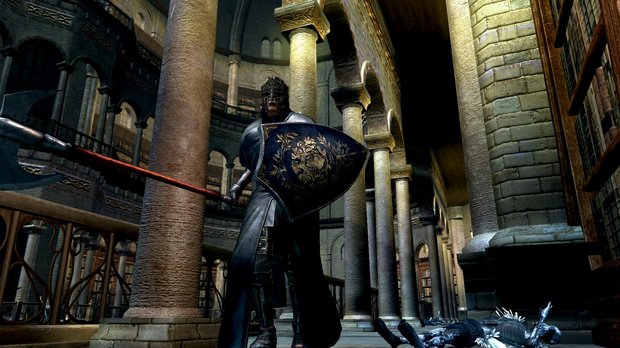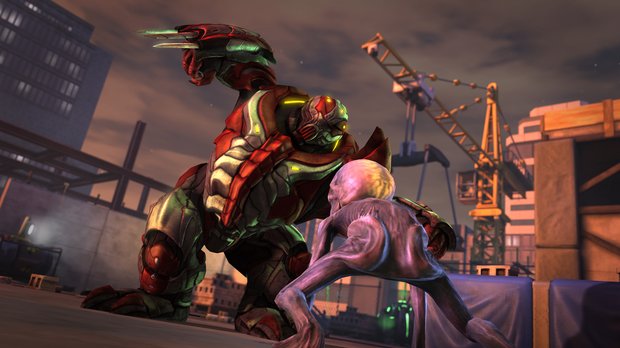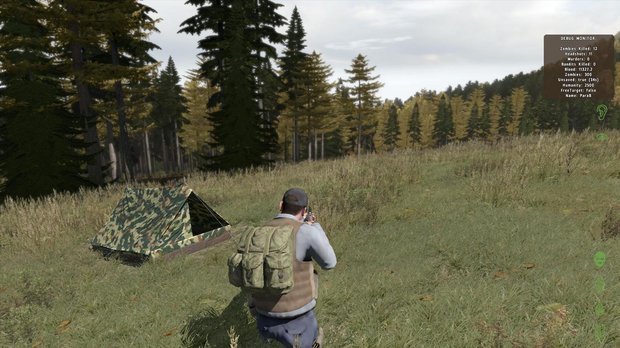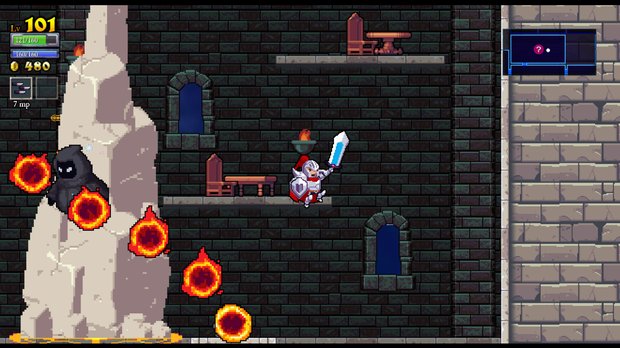Why permadeath is alive and well in video games
Permadeath games are defined by punishment. If you snuff it--or more accurately, when--your character is gone for good. No retrieving your equipment, no reloading an earlier save. It's a ruthless way to play. So what’s behind the popularity of brutal, permanent death?

There's no perfect definition of a permadeath game. They vary from single player survivals like Don't Starve to shooter MMOs like DayZ. The concept drives low-budget roguelikes like FTL and big-budget blockbusters like XCOM: Enemy Unknown. There's even an iOS game called One Single Life that can't be played again once you've died (well, unless you delete then reinstall it).
There are twists, too. Dark Souls and ZombiU let you retrieve souls / items from your own corpse to reverse failure, while the hacking game Uplink can see your computer permanently 'disavowed' from the fictional in-game network if you’re caught. Permadeath can feature in various genres, then, but it can also be a genre itself. Essentially, permadeath is about being unable to rewrite the past--mistakes carry consequences.
The concept echoes in gaming’s infancy. Before games let you save data, every death meant restarting. In coin-gobbling arcade games such as Pac-Man, Donkey Kong and Centipede, this was not a quirk of design but the norm.

So why are developers returning to permadeath? For Sir, You Are Being Hunted designer Jim Rossignol, “It heightens excitement. If the player is risking something--in the case of most games the time you have invested to reach a certain point - then taking risks with that investment is more thrilling. If you can just hit a key and get everything back, it's less of a thrill to succeed, and less of a horror to lose.”
And what’s behind its popularity with gamers? “Boredom,” says Rossignol. “Gamers want excitement as much as they want convenience. While there's a strong school of thought that suggests that players shouldn't lose anything and should always be able to reload, there's also a good reason to believe they want to feel the kind of risk and reward you get from, say, gambling.”

This same brand of Permadeath is central to Rust. Its designer Garry Newman explains: “It was important to us in Rust to make it so the characters never left the world. Not only does it make sense in-game, but it also solved a bunch of other gameplay problems we were seeing... like players picking up every item they own before they disconnected, keeping their stuff safe. It adds emergent gameplay, players could create a hotel where they watch over and guard their sleeping buddies for example.”
Weekly digests, tales from the communities you love, and more
“I guess ultimately gamers are always on a quest for new and different experiences,” Newman continues. “Permadeath is a new and different experience. We treat the player like shit. They’re not used to that. And they like it.”
So if permadeath games treat gamers like shit, how do they avoid frustrating them? Roguelikes such as Spelunky and Starbound sidestep level repetition by procedurally generating them, while FTL grants new ships upon restarting. Rogue Legacy has its own unique spin. “Permadeath plays a huge role,” says one of the game’s designers Teddy Lee. “We use a modified version of it though, so it's more like a quasi-permadeath system. You still retain all the gold you gained that run so it's a little more casual. It allowed us to give players all of the benefits you get from permadeath mechanics (i.e. ability to refresh the level layout, meaningful consequence to dying, etc.) while lowering the frustration bar.” Systems in these games transcend death, altering starting parameters to avoid repetition and ultimately preventing the waste of players’ time.

The unforgiving XCOM: Enemy Unknown is the opposite--hours of progress can be lost in the blink of an eye. You might see your custom-named soldier scrape through countless battles, but if he dies so does the time you spent training him. Actions have repercussions and death is irrevocable. Indeed, permadeath forces you to get good. “The best thing about permadeath is that it encourages mastery of the system,” says Lee. “Because the world (usually) changes every time you die, the player has to understand the rules of the game world and lean on that foundation instead of relying on rote memorization to beat it.”
Permadeath encourages emotional rather than logical thinking. The question when encountering enemies isn’t “How do I take them on?” but “Do I even want to?” This emotional angle powers player action in DayZ. People have been robbed, kidnapped, and even forced to sing at gunpoint. This works precisely because everyone has one life, and just like in the real world, they'll do anything to preserve it.

Some games are a little more lax with permadeath. The likes of Dead Space 2 and 3, and Batman: Arkham Origins, restrict it to separate difficulty modes. Minecraft calls its permadeath mode ‘hardcore’. “This sets the difficulty to the highest possible level, and if you are killed the game will delete your world,” says Minecraft programmer Jens Bergensten. “It's intended for players who enjoy the feeling of unforgiving danger.”
“The best thing is that it puts a lot of extra tension on the experience. Every encounter needs to be taken seriously. The bad thing is that it may add a lot more of trial-and-error gameplay. Surprises and unexpected behaviour become unnecessarily unfair to the player.” Because not everyone responds well to soul-crushing difficulty, the ability to turn off permadeath is sometimes crucial.
Mass-market affairs tend to be more narrative-driven, and this is simply incompatible with permadeath. Heavy Rain’s branching missions, built to facilitate the fact that your character can apparently die at any point, only branch so far. And imagine how dispiriting it would be to restart Uncharted because you died five hours in.

Just how do you write in the possibility of a side character biting the bullet? Mass Effect features the permanent death of squadmates, but dialogue is recycled by stand-ins. Fire Emblem is even more inconsistent, with soldiers who retire on the battlefield still appearing in cutscenes. Not only is permadeath niche and potentially off-putting to a mainstream audience, but it also throws up all manner of narrative headaches.
However, what’s important is that developers are thinking differently about death. It can be more than just an accident--it can be an integral part of the experience. It can encourage emergent drama. It can push players to master new systems. It can increase the bond with your avatar. Permadeath can change the very way you play games. And why not? You know what they say: you only live once.



